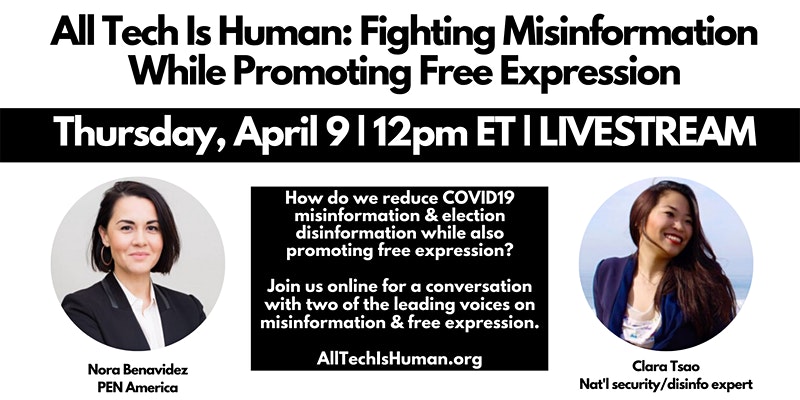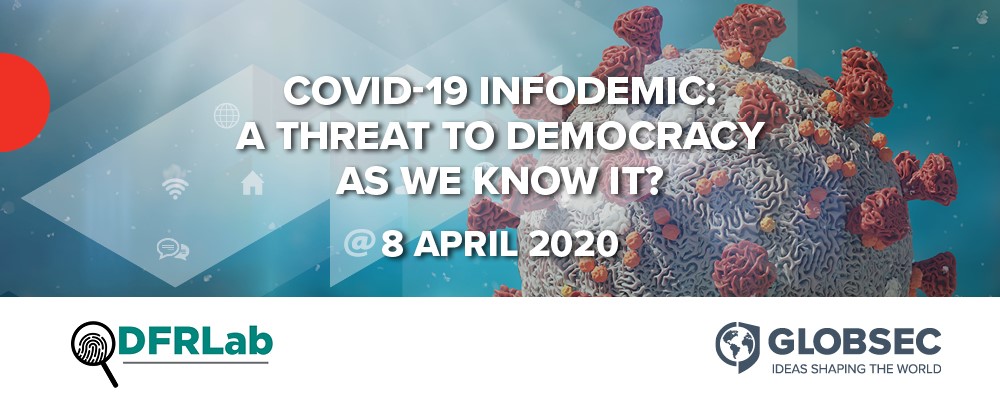
The West has largely been in disarray in responding to autocratic disinformation on the COVID-19 pandemic, prompting calls for the U.S. to launch a “multilateral” initiative with like-minded democracies to engage more energetically in the current “battle of narratives.”
Democracies need to move from defending in isolation to defending collectively, according to Keith B. Alexander, the former director of the U.S. National Security Agency, and Jamil N. Jaffer, the former chief counsel of the Senate Foreign Relations Committee. To that end, states must not only create a common operating picture of disinformation efforts and cyber attacks, but the federal government must contribute actionable information about the attacks being crafted overseas, they write for The Hill:
- Perhaps most important, we must recognize that threat-sharing is only effective to the extent that it helps us identify new threat vectors, rapidly close gaps and collaborate in real-time to combat the threats.
- Finally, we must remember that this threat is a challenge to our allies, too… Now more than ever, it is critical that we not take our eye off the ball when it comes to the threats posed by our adversaries, and that we work collectively to defend against these threats around the globe.
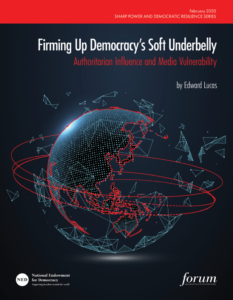 Facebook Inc.’s WhatsApp is limiting users’ ability to forward content on its encrypted messaging platform, as misinformation about the coronavirus pandemic proliferates, the Wall Street Journal reports:
Facebook Inc.’s WhatsApp is limiting users’ ability to forward content on its encrypted messaging platform, as misinformation about the coronavirus pandemic proliferates, the Wall Street Journal reports:
WhatsApp also announced last month a $1 million grant to the International Fact-Checking Network, part of the nonprofit Poynter Institute. Facebook founder and Chief Executive Mark Zuckerberg said last month that the WHO and governments have sent more than 100 million messages over WhatsApp….World-wide, Facebook, Twitter Inc. TWTR +6.62% and YouTube, owned by Alphabet Inc.’s Google, have been battling misinformation related to the coronavirus on their platforms. The European Union is reviving an alliance formed last year with U.S. tech companies to fight online political disinformation, now focusing on false information about the coronavirus.
The EU’s foreign policy head Josep Borrell has called the wave of fake news being spread about the coronavirus an “infodemic”, reports suggest.
 “In the current situation we are facing a kind of an ‘infodemic’,” he said. “It is a toxic process that brings to the public a lot of fake news and wrong information. It is important to remind that Europeans stand together to fight against the crisis,” the EU’s foreign policy chief added.
“In the current situation we are facing a kind of an ‘infodemic’,” he said. “It is a toxic process that brings to the public a lot of fake news and wrong information. It is important to remind that Europeans stand together to fight against the crisis,” the EU’s foreign policy chief added.
The COVID-19 pandemic is “the Super Bowl” for the spread of misinformation, NYU assistant professor Danny Rogers tells GZERO’s Alex Kliment. His organization – the Global Disinformation Index – seeks sources and distributors of misinformation online, from scammers and con artists looking to profit off the pandemic to state actors spreading myths for geopolitical gain.
U.S. government officials had already warned before the pandemic that Russia, China, Iran and others would use online influence operations to spread divisions and disinformation, undermine U.S. institutions, censor content and more. With an unprecedented public health crisis in the midst of an election cycle, the environment is even more primed for foreign influence operations, one observer adds:
• The EU’s disinformation project, EUvsDisinfo, reports that a “significant disinformation campaign by Russian state media and pro-Kremlin outlets regarding Covid-19 is ongoing,” promoting the conspiracy theory that the virus was a creation of the West.
• The pandemic is “giving Russian authorities an opportunity to test new powers and technology,” CNN reports, including the use of facial recognition cameras, social media surveillance, and geolocation data to catch and fine quarantine-violators.
• Russia is using the coronavirus crisis to spread conspiracy theories in a bid to “subvert the West” and create a new world order, according to a new report from the University of Calgary’s School of Public Policy.
• Russia is targeting its own citizens with a narrative of COVID-19 as a form of foreign aggression.
• China’s regime has created “thousands of fake and hijacked Twitter accounts” to build an external-facing propaganda apparatus, the Alliance for Securing Democracy reports:
• Chinese officials are dramatically increasing their presence on Western social media platforms. Beijing’s more confrontational posture on COVID-19 signals a move toward a Russian style of disinformation, while official Chinese messengers piggyback on Iranian and Russian propaganda networks.

National Endowment for Democracy (NED)
How effective have G-7 countries been in responding to this sharp power offensive? In short, not very effective at all.
The West has largely been in disarray, notes one report. Liberal democracies appear to be failing to address what High Representative Josep Borrell, the European Union’s foreign minister, has called a ‘battle of narratives’.
U.S. reluctance to lead has created a global leadership vacuum and undermined democratic unity in the midst of one of the most significant global crises in recent history, ACUS contends.
U.S. Rep. Michael McCaul, Republican ranking member of the House Foreign Affairs Committee, has called on Secretary Pompeo him to launch a “multilateral” inquiry with like-minded “democracies” into China’s “cover-up and disinformation campaign.”·
At a time when independent journalism is under extraordinary and growing pressure, a recent
@ThinkDemocracy report by Edward Lucas on authoritarian influence and media vulnerability (above) puts the stakes in context and suggests what might be done to respond, NED’s Christopher Walker adds.
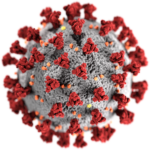 As the coronavirus has spread globally, so has disinformation and censorship by authoritarian governments, the Wilson Center observes. Yet even democracies are not immune: Brazilian President Jair Bolsonaro has been condemned by social media sites and members of his own government for spreading disinformation on social distancing measures recommended by public health authorities.
As the coronavirus has spread globally, so has disinformation and censorship by authoritarian governments, the Wilson Center observes. Yet even democracies are not immune: Brazilian President Jair Bolsonaro has been condemned by social media sites and members of his own government for spreading disinformation on social distancing measures recommended by public health authorities.
Please join GLOBSEC and the Atlantic Council’s Digital Forensic Research Lab (DFRLab) for a virtual panel discussion on how the democratic countries should respond to the Coronavirus infodemic, authoritarian charm offensive, and democratic backsliding.
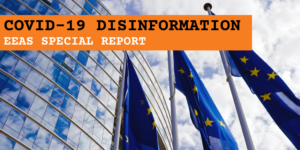 April 8, 2020. 09am – 10am EDT / 3pm – 4pm CET. Since the number of attendees is limited, please register in advance for this webinar here.
April 8, 2020. 09am – 10am EDT / 3pm – 4pm CET. Since the number of attendees is limited, please register in advance for this webinar here.
SPEAKERS
Anneli Ahonen, East Stratcom Task Force, European External Action Service (EEAS).
Graham Brookie, Director and Managing Editor, DFRLab, Washington DC.
Sasha Havlicek, CEO, Institute for Strategic Dialogue, London.
Peter Kreko, Director, Political Capital Institute, Budapest.
Moderated by Daniel Milo, GLOBSEC, Bratislava.
A Wilson Center webinar on Apr. 7, 2020, 3:00pm – 4:00pm, will feature STIP Disinformation Fellow Nina Jankowicz, Kissinger Institute Associate Rui Zhong, and Brazil Institute Senior Associate Anya Prusa discussing disinformation surrounding the coronavirus and the U.S. response. RSVP
In our battle to reduce misinformation around COVID-19 and disinformation with upcoming elections, we have run headfirst into thorny issues of content moderation, censorship, and media literacy, PEN America adds. How do we strike the right balance to reduce dangers to public safety and democracy, while also promoting our deeply-held values of free expression?
Join two leading experts, Nora Benavidez (PEN America) & Clara Tsao (National security & disinformation expert) for this timely and important discussion. This discussion will be livestreamed, and include plenty of opportunity for audience comments and participation. We will be livestreaming to our YouTube page, our website’s homepage, Periscope page, and embedded on our Twitter account. The talk will be moderated by David Ryan Polgar, the founder of All Tech Is Human. Thu, April 9, 2020. 12:00 PM – 1:00 PM EDT Add to Calendar.
